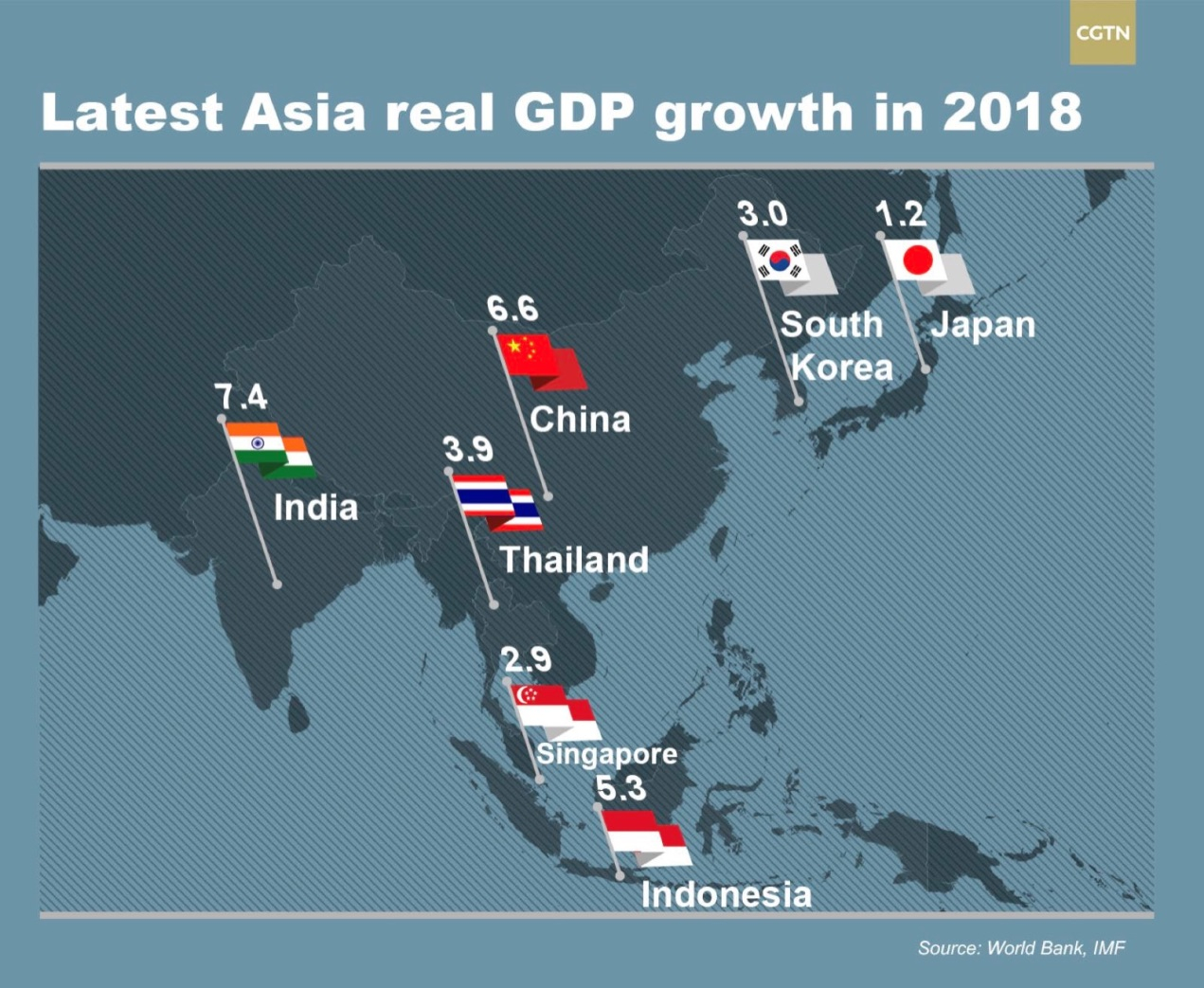
Money Stories
16:16, 12-May-2019
Asia: The engine of world's economic development
Zhang Xinyue

Apart from being an ancient civilization, Asia is
also an economic force to be reckoned with. The 2018 International Monetary Fund (IMF) report shows that Asia has contributed to over 60 percent of the world's economic growth, hitting a growth rate of
5.6 percent in 2018 and 5.4 percent in 2019. As Asia's productivity and consumption levels continue
to increase, Asia will soon become the powerhouse of future world economic
development.
Growth in Asia is forecast at 5.6 percent
in 2018 and 2019, while inflation is projected to be subdued, according to the Regional
Economic Outlook Report: Asia Pacific. Strong and broad-based global growth and
trade, reinforced by the U.S. fiscal stimulus, are expected to support Asia’s
exports and investment, while accommodative financial conditions should support
domestic demand.

CGTN Infographics
CGTN Infographics
China's growth is projected to ease to 6.6 percent, partly reflecting the authorities' financial, housing, and fiscal tightening measures. Growth in Japan has been exceeding expectations for eight consecutive quarters and is predicted to remain strong this year at 1.2 percent. In India, growth is expected to rebound to 7.4 percent, following temporary disruptions related to the currency exchange initiative and implementation of the Goods and Services Tax (GST).
Results of the 2019 World's Most Livable City Survey released by Mercer Management Consulting have incorporated 14 Chinese cities with the Hong Kong SAR (Special Administrative Region) placed on top among all Asian cities and securing the 71st position in the world. Singapore ranks 25th.
Mercer Management Consulting said that the living quality of a city depends on many factors including the means and congestion degree of public transport, allocation of resources in housing and schooling, and cultural climate.

SITEMAP
Copyright © 2018 CGTN. Beijing ICP prepared NO.16065310-3
Copyright © 2018 CGTN. Beijing ICP prepared NO.16065310-3